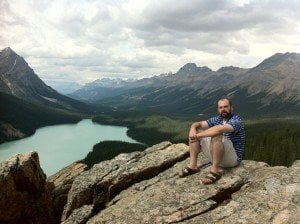 I’ve known that I wanted to do a post about the environment for a while, but I haven’t really known what to say. Not because there’s nothing to say, but because it’s all been said so many times by so many people who know way more about it than I do.
I’ve known that I wanted to do a post about the environment for a while, but I haven’t really known what to say. Not because there’s nothing to say, but because it’s all been said so many times by so many people who know way more about it than I do.
Basically, we either get serious about being a sustainable part of creation, or we watch our behaviour degrade and destroy the stuff of which we’re made.
It seems like a pretty simple choice, but we seem to unable to make it.
As a church, we haven’t been helped by the language of dominion that we find in scripture. The creation story of Genesis puts human beings at the centre and peak of creation. It describes a particular kind of relationship with the rest of creation that has too easily slipped from dominion over something that was never ours to begin with to domination over something to which we feel entitled.
That’s what I’ve been thinking about. Not the interpretation or exegesis of Genesis (that has been done much better than I could). Instead, to explore the sense of entitlement we seem to have developed towards creation.
Entitlement is pretty common in the global north. Most of us, regardless of age or location, have a hefty sense that we are entitled to all sorts of things. There has been a fair bit of dialogue online about the entitled generation. Depending on the author of the article, the blame is usually cast on the baby boomers or the millenials. If we’re honest with ourselves, however, we know that regardless of our generation, we feel pretty comfortable with our ideas of what should be ours and what we should have: retirement, home ownership, car and plane travel, unrestricted diets, entertainment of whatever sort whenever we want it.
Most of us think of most of these things as normal and good. And I don’t think they’re necessarily bad in themselves. I really like the idea of retiring one day, and I hope that I’m able to!
What it comes down to, though, is the cost of my entitlements to creation. If I believe that all of creation, everything that makes up the material universe living and not, springs from the same source, have I reckoned the cost of what I want on that creation? Have I considered that it, too, is loved by God, and whether I have treated it with love?
Those are big questions, and working out the details of how to do that isn’t easy. But maybe those are the questions communities of faith should be asking, as we learn how to be sustainable communities.
